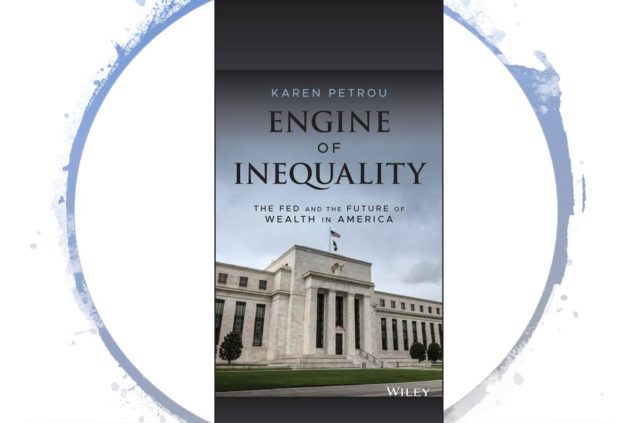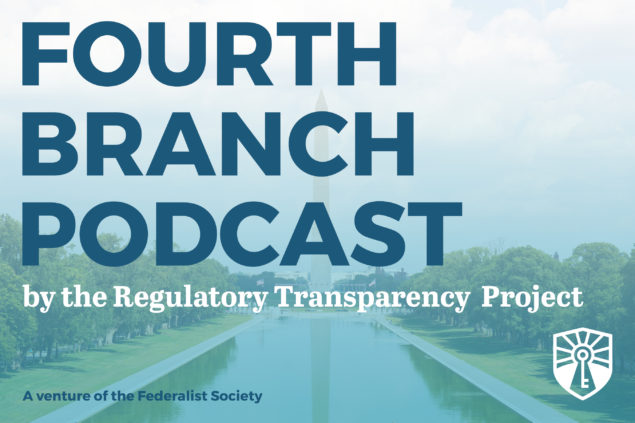Wayne A. Abernathy
Former Assistant Secretary for Financial Institutions
U.S. Department of the Treasury

Wayne A. Abernathy
Former Assistant Secretary for Financial Institutions
U.S. Department of the Treasury
Wayne A. Abernathy is a former U.S. Treasury Assistant Secretary for Financial Institutions under President George W. Bush, receiving the Alexander Hamilton Award in recognition of his service. In that office he was also a member of the Board of Directors of the Securities Investor Protection Corporation. Prior to his work at the Treasury, Mr. Abernathy served as Staff Director of the Senate Banking Committee, under Chairman Phil Gramm.
Following his service at the Treasury, Mr. Abernathy worked for 15 years on the staff of the American Bankers Association, as Executive Vice President for Financial Institutions Policy and Regulatory Affairs.
Previous experience with the Senate Banking Committee includes serving as Staff Director of the Subcommittee on Securities during 1995-1998. From 1989 until 1994, Mr. Abernathy was a Republican economist for the committee. He previously worked as a senior legislative assistant for Senator Gramm during 1987-1989 and as an economist for the Banking Committee’s Subcommittee on International Finance and Monetary Policy during 1981-1986, under Chairman Jake Garn.
Mr. Abernathy earned his bachelor’s degree in International Studies from The Johns Hopkins University in 1978. In 1980, he received a master’s degree in International Studies from the School of Advanced International Studies of The Johns Hopkins University.

A person listed as a contributor has spoken or otherwise participated in Regulatory Transparency Project events, publications, or multimedia presentations. A person's appearance on the website does not imply an endorsement or relationship between the person and the Regulatory Transparency Project. The Regulatory Transparency Project takes no position on particular legal or public policy issues. All expressions of opinion by a contributor are those of the contributor.
Contributions
Go Ahead, You Do It For Us
Wayne A. Abernathy
Rule of Law or Rule of Experts? Almost exactly 9 years ago, I spoke to this question, posed by the erosion of the Constitution’s separation of powers. At a legal symposium in Philadelphia, I raised the problem of concentration of say-so in federal financial regulators.
Read this articleStressing Banks and the Economy
Wayne A. Abernathy
This blog post discusses to what extent the Federal Reserve’s models test for the real world problems of the Fed’s monetary policy.
Read this articleDeep Dive Episode 170 – Engine of Inequality: The Fed and the Future of Wealth in America
Wayne Abernathy and Karen Shaw Petrou discuss Petrou’s new book, the problems she identifies in Fed policies, and how she sees her proposals rising above partisanship to achieve the goals she sets out.
Listen to this podcastReplacing Too Big to Fail with Safe to Fail
Wayne A. Abernathy
Rejection of the idea that any bank is too big to fail (TBTF) is currently universal among U.S. policymakers. Yet some apprehension persists that this policy consensus may be fragile. That apprehension may continue until worries of too big to fail are replaced with confidence that U.S. banks are safe to fail.
Read this articleRelax, a Capital Idea
Wayne A. Abernathy
The Federal Reserve Board began the second quarter of the year by relaxing part of its capital rules for bank holding companies. In particular, its interim final rule would exclude from some capital calculations the investments that banks have in funds placed with the Fed and holdings of U.S. Treasury securities.
Read this articleQuarles’ Conundrum of Bank Supervision
Wayne A. Abernathy
Without subpoenas, bank examiners routinely poke through the books, records, premises, and operations of chartered banking firms. In fact, examiners are resident—as in, have permanent offices—in the headquarters of the larger banks. They essentially live there. Intrusive examination is the core of bank supervision.
Read this articleThe FDIC Refinery
Wayne A. Abernathy
The FDIC took several actions to refine proposed and existing banking regulations, each with a focus on better achieving their purpose by making them easier to administer and less of a weight on economic activity.
Read this articleDeep Dive Episode 56 – Loan Shark Prevention Act
This podcast examines the economics of interest-rate ceilings on consumer credit and the historical experience with such proposals, and discusses a proposal to create a Post Office bank.
Listen to this podcastHerring Does Capital
Wayne A. Abernathy
Richard J. Herring, professor at the Wharton School, is well known for his insightful commentary on the financial system. His paper on “The Evolving Complexity of Capital Regulation” is a good example of why. Professor Herring presents a readily accessible and remarkably concise history of the development of global standards for bank capital, starting with the first Basel Capital Accord (Basel I—regulators are now looking at the implementation of Basel IV). Then he walks through additions and amplifications under the Dodd-Frank Act and various regulatory innovations, each regulatory round designed to address perceived problems of previous standards.
Read this articleMay I Offer You Some Guidance?
Wayne A. Abernathy
Guidance from regulators to the regulated can be valuable when kept within the bounds of genuine guidance. When it moves toward compulsion, it moves onto ground obnoxious to the rule of law. The joint statement of five financial regulators reinforces that understanding.
Read this articleAnyone Know a Good Tailor?
Wayne A. Abernathy
It is difficult to find a public statement by a financial services policymaker these days where the policymaker does not invoke the importance of tailoring bank regulation and supervision. This is major progress from the days of one-size-fits-all programs. A fundamental characteristics of the U.S. banking system is its diversity of business models, developed over the years to match the diversity of financial services customers. Can bank supervision be tailored to accommodate that diversity?
Read this articleThe Consumer Bureau Asks Congress to Fix It
Wayne A. Abernathy
Mulvaney’s basic argument is cogent and refreshing. In short, he says “the Bureau is far too powerful, and with precious little oversight of its activities.”
Read this articleFinding the Value in Financial Failure
Wayne A. Abernathy
Title II of Dodd-Frank—written in law as secondary, a recourse to the bankruptcy process—has been criticized by some for being punitive, prone to destroy value, and by others as too vulnerable to use in propping up failed firms that should be removed from the financial playing field.
Read this articleDeep Dive Episode 13 – Discussion on U.S. Treasury Reports
J. W. Verret (Antonin Scalia Law School) and Wayne Abernathy (American Bankers Association) discuss the Treasury Department’s recent report to President Trump on Core Principles for Financial Supervision.
Listen to this podcastThe Bureau Shrinks the Supply of Smaller Dollar Loans. What About the Demand?
Wayne A. Abernathy
These days the financial regulators are engaging in a careful but high priority regulatory reform process, looking at regulations of recent years to see how they may be revised and refined to promote economic growth. Except for the Bureau of Consumer Financial Protection. The Bureau is still in the business of adding new regulations.
Read this articleWhat Can a Sandbox in Arizona Do for Financial Innovation?
Wayne A. Abernathy
History demonstrates that innovation is one of the things that a free society does best. Fostering innovation was one of the goals of the Founders who created a federal system of government, since centralization of power tends to discourage new thinking, creativity, and new ways of doing things. This is particularly true for new ways of doing things that can challenge “old ways.” Some “old ways,” such as freedom and individual rights, are timeless. Others are more temporal and in need of adjustment to remain relevant to evolving societies and conditions.
Read this article














